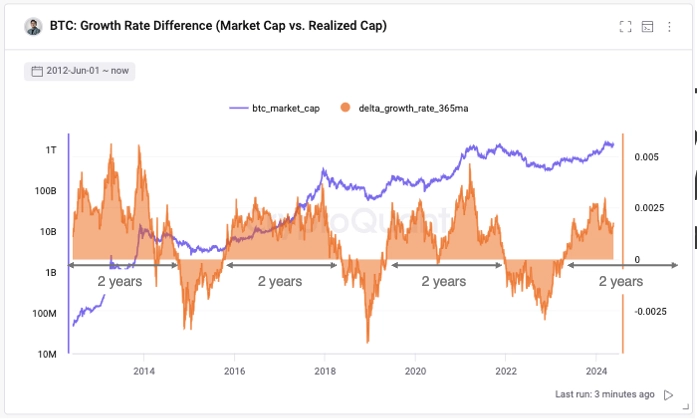The last six months have been a financial strain for crypto investors. The market appears to be deteriorating by the day. Financial regulators have exacerbated the panic in the cryptocurrency market. On the other hand, some financial regulators are taking a more positive stance and demanding consumer protection in the decentralized marketplace.
Financial regulators are called upon to provide consumer protection to crypto investors
On Wednesday, Switzerland’s top market regulator said that cryptocurrency trading increasingly resembles the U.S. stock market of the late 1920s. Furthermore, the official called for financial regulators to do more in order to protect customers from fraud in the freewheeling industry.
The $890 billion cryptocurrency market, which is primarily governed by ad hoc legislation, is now the target of financial regulators’ attention. The crypto community has been facing a period of volatility in recent months, and it appears to be getting worse.
The decision by cryptocurrency lender Celsius to halt client withdrawals has slammed the market: prices are tumbling, and traders are preparing for further suffering as they look for hints of a repeat of last month’s Terra catastrophe. Dig a little deeper, however, and you’ll discover that the situation has the potential to be even more of an existential peril than the market analytics suggest.
Cryptocurrencies have frequently been the subject of worries by financial regulators and policymakers over the risk they pose to consumers. For almost a decade, there has been little that centralized financial regulators can do to safeguard crypto investors sold in a decentralized market.
However, the recent increase in crypto frauds, scams, rug pulls, financial manipulation, and market downturns has prompted these authorities to reconsider their methods. The situation caused the U.S. securities regulators to issue a warning about the danger of manipulation in opaque crypto markets.
There’s much more that can be done. It would seem to me that a lot of trading in digital assets looks like the U.S. stock market in 1928, where all kinds of abuse, pump, and dump, are now in fact frequently common […] Let’s also think about the potential of technology to make it easy to deal with the large amounts of data and to protect consumers from trading on abusive markets.
Urban Angehrn, CEO, Swiss Financial Market Supervisory Authority (FINMA)
After a series of major firms’ collapses, crypto markets have been in turmoil for the previous few weeks. The cryptocurrency market has dipped to around $900 billion, down from a record $3 trillion in November, with losses increasing after U.S.-based crypto lender Celsius Network halted the accountholders of its 1.7 million users last Friday.
The price of bitcoin tumbled below $20,000 for the first time since December 2020 on June 18. This year, it has dropped 60%, soaring inflation and increasing interest rates drive investors to seek refuge in safer assets. The challenges at Celsius are likely to worsen as a result of U.S. regulatory pressure on an industry already fighting off other crises this year.
Financial watchdogs take an interest in crypto lending amid the Celsius meltdown
It’s a squabble over the future of the crypto market between competing world financial institutions who are caught in a tug-of-war about whether to entirely ban cryptocurrencies or safeguard their citizens, who profit from them. A week after Celsius had to shut down the withdrawal option for its customers, ECB President Christine Lagarde expressed her support for increased regulation of the crypto sector.
On Monday, ECB head Christine Lagarde gave a speech in the European Parliament in which she addressed the impending inflation in Europe and worldwide, as well as crypto-asset staking and lending.
In Lagarde’s view, this trend necessitates additional European Union and worldwide financial regulatory action. She even coined the term “MiCA II” to describe the major regulatory package moving through the legislative process. She also stated that there are risks to consumers and businesses when bitcoin-related companies do not have existing rules or regulations.
MiCA II should regulate the activities of crypto-asset staking and lending, which are definitely increasing. Innovations in these unexplored and uncharted territories put consumers at risk, where the lack of regulation is often covering fraud, completely illegitimate claims about valuation, and very often speculation as well as criminal dealings.
Christine Lagarde
Christine Lagarde is well-known for her outspoken anti-crypto stance and numerous allegations that cryptocurrencies are “worth nothing” and have no basis in reality. Meanwhile, the European Commission announced that it will release a digital euro plan by 2023. The ECB is expected to have a prototype by the end of 2022, with a potential debut in 2025.
In other news, consumers seeking compensation for crypto injustice are turning to the Consumer Financial Protection Bureau (CFPB) for assistance. The Consumer Financial Protection Bureau is a federal agency established under the Dodd-Frank Act of 2010 in response to Wall Street’s harmful abuses against average Americans before the 2008 financial crisis.
One of the agency’s most appealing features is that it maintains a complaint database in which consumers can submit their complaints, and the general public and journalists may browse them on a public website. Reporters can look for concerning tendencies that are forming, and the public benefits from learning about the various types of complaints filed against a bank they might be thinking about doing business with.
Thousands of complaints have been filed against cryptocurrencies. There are 1,031 matches for Bitcoin complaints in a closer inspection. Additionally, as of yesterday, crypto had 885 complaint match possibilities.
According to the complaint database, one cryptocurrency exchange received many complaints; That was Coinbase, which went public on Nasdaq to much acclaim on April 14, 2018. 3,732 matches were found for Coinbase. Additionally, at the top of the heap is Goldman Sachs, which earned 1,193 complaint matches. The call for financial regulators to remedy a flawed economic system rings out.
Coinbase’s website has the slogan “The future of money is now.” If this is the case, America is doomed, and every citizen will soon be stuffing their cash under the mattress or burying it in the backyard based on the stomach-churning specifics in the CFPB complaints.
Financial regulators all over the world are pushing for an end to the cryptocurrency industry’s difficulties. Only time will tell if and how financial regulators’ involvement will benefit or harm the sector.





